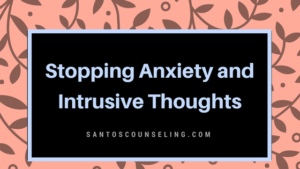Navigating ADHD in Young Adulthood: Strategies for Managing ADHD Symptoms
Attention-Deficit/Hyperactivity Disorder (ADHD) can manifests differently in adults compared to children. The mental health condition can often persists from childhood into adulthood, presenting unique difficulties for young adults. The challenges often begin to take place as young adults grow and begin to have more responsibilities in life. This can lead to struggling with prioritization, time management, organization, and other areas which often impact success in life. Continue reading to learn how counseling can help.
3 Common ADHD Symptoms in Young Adults
As mentioned before, ADHD can show up in adults differently compared to kids. Here are a few common ways that ADHD shows up in adults:
1. Time Management Difficulties:
This can be seen where adults have a difficult time getting to work on time or perhaps a chronic lateness. This symptom of ADHD is often connected to procrastination and getting distracted.
Some adults with ADHD will also experience a challenge in how they approach the time it will take to complete a tasks. As such, this leads to a struggle with time management.
2. Emotional Regulation Challenges:
ADHD at its core is a disorder that impacts a persons executive skills. These executive skills are associated with the prefrontal cortex. Click here to read over the prefrontal cortex and executive functioning.
What takes place is that a person will experience difficulty with managing and regulating their emotions. This can be seen when an adult has a sensitivity to criticism, withdrawals when things go wrong, or has a heightened irritability state.
3. Organizational Struggles:
Have you found yourself misplacing your wallet? Or perhaps not sure when your next appointment is? A common symptom of ADHD in adults is focused on the difficulty of maintaining organization in life. This is typically not a strong symptom in childhood because kids have caretakers to help them.
If a child forgets there homework or is running late, their parent will often address the issue by brining the homework.

4 Effective Strategies for Managing ADHD Symptoms
Implementing strategies can significantly improve ADHD symptoms and enhance your ability to function effectively across multiple domains of life. Such as being able to execute effectively at work, show up with a healthy mood with friends and family, and stick to commitments.
1. Structured Routines:
Establishing a regular schedule that you can follow can helps in managing time effectively and reducing forgetfulness.
2. Mindfulness Practices:
Techniques such as meditation can improve focus and emotional regulation. This technique among others can be learned by working with a licensed counselor.
3. Physical Activity:
Engage in exercise and movement activities. This practice has been shown to improve concentration and reduce hyperactivity. Click here to learn more about exercise and ADHD.
4. Professional Counseling:
At Santos Counseling, we have trained licensed mental health professionals that hold practice and understanding for ADHD. Engaging with counseling that holds education and training in ADHD can provide personalized coping mechanisms and support. Contact our office today.
The Role of Counseling in ADHD Management
When people reach out to Santos Counseling there is often a question about how counseling can help with ADHD. As mentioned before, ADHD is a mental health condition that impacts executive functioning.
You can think of executive functioning as key domains that we need to effectively navigate life. The domains include items like working memory, emotional control, time management, organization, and reasoning. They work to help us function and manage internally and externally.
Counseling offers a supportive and safe environment to explore difficulties and develop effective strategies. At Santos Counseling, we utilize evidence based approaches like Cognitive Behavioral Therapy (CBT), Mindfulness, and Dialectical Behavioral Therapy (DBT), to address negative thought patterns and behaviors associated with ADHD.
Key ways counseling can help you with ADHD:
- Develop Organizational Skills:
- Improve tasks completion.
- Manage stress.
- Enhance Emotional Regulation.
- Improve Interpersonal Relationships.





